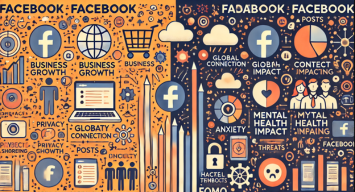As you already know, Facebook has been a big part of our lives since we were kids, and even now, it’s still going strong. Since its launch in 2004, Facebook has remained a dominant player in the social media world. Over the years, it has evolved into much more than just a place to connect with friends and share updates. With over 3 billion users worldwide, Facebook has grown into a vast ecosystem that brings together social interaction, business marketing, e-commerce, community building, and even education. Because of this, it has become an important tool for both personal and professional life, catering to an incredibly diverse audience.
In 2021, Facebook took a big step and rebranded itself as Meta, reflecting its ambition to be more than just a social networking platform. Meta has grown into a diverse digital world that includes virtual reality (VR), augmented reality (AR), e-commerce, and so much more. The company’s vision is to create the metaverse, “a fully immersive and connected digital space where people can work, socialize, and shop effortlessly, all without wasting time moving between platforms or locations.” And today, in 2025, that vision is steadily becoming a reality.
With over 3 billion users worldwide, Meta’s platforms include Facebook, Instagram, WhatsApp, and Oculus. Those platforms have become essential to daily life. Whether it’s staying in touch with friends, building communities, or running a business, these platforms have changed how we interact and get things done online.
But with all the good that comes with Facebook, it hasn’t been without its controversies and challenges that affect us all. Privacy, misinformation, and mental health are ongoing issues. Facebook’s algorithms are designed to keep us engaged but sometimes can be a bit too addictive, leading to social isolation, cyberbullying, and surface-level communication. These are big issues that Meta has to deal with as the platform becomes more and more a part of our daily lives.
As Facebook becomes more and more a part of how we live, work, and interact, the line between the good and the bad gets blurred. In this post, we’ll look into both the pros and cons of Facebook to get a balanced view of how it’s shaping modern life for good or bad.
Advantages of Facebook in 2025
1. Global Reach with Local Impact

Facebook is the perfect tool to connect with anyone, anywhere in the world. With over 3 billion users, it continues to bring people together across the globe while also staying focused on local communities. Thanks to its incredible connectivity, Facebook allows us to easily chat, share ideas, and network with people from different countries and cultures, helping build a sense of global unity.
At the same time, it helps support small businesses, local events, and neighborhood groups, making it simple to get involved in nearby activities. This balance of global and local connections truly makes Facebook a tool for everyone.
2. Metaverse Integration for Virtual Socializing

When Facebook rebranded itself as Meta, it revolutionized social interaction by introducing immersive digital environments. Now, with this advanced technology, Facebook users can meet, chat, and socialize in virtual spaces like never before. It’s not just casual conversations anymore; these interactions have become dynamic and exciting experiences.
Whether you are attending virtual concerts, working in a 3D office, or simply hanging out with friends in a virtual café, Facebook’s metaverse opens up endless possibilities. This goes way beyond simple text and video, creating deeper, more lifelike connections and helping people build relationships in ways we never thought possible.
3. Advanced AI-Powered Ad Targeting
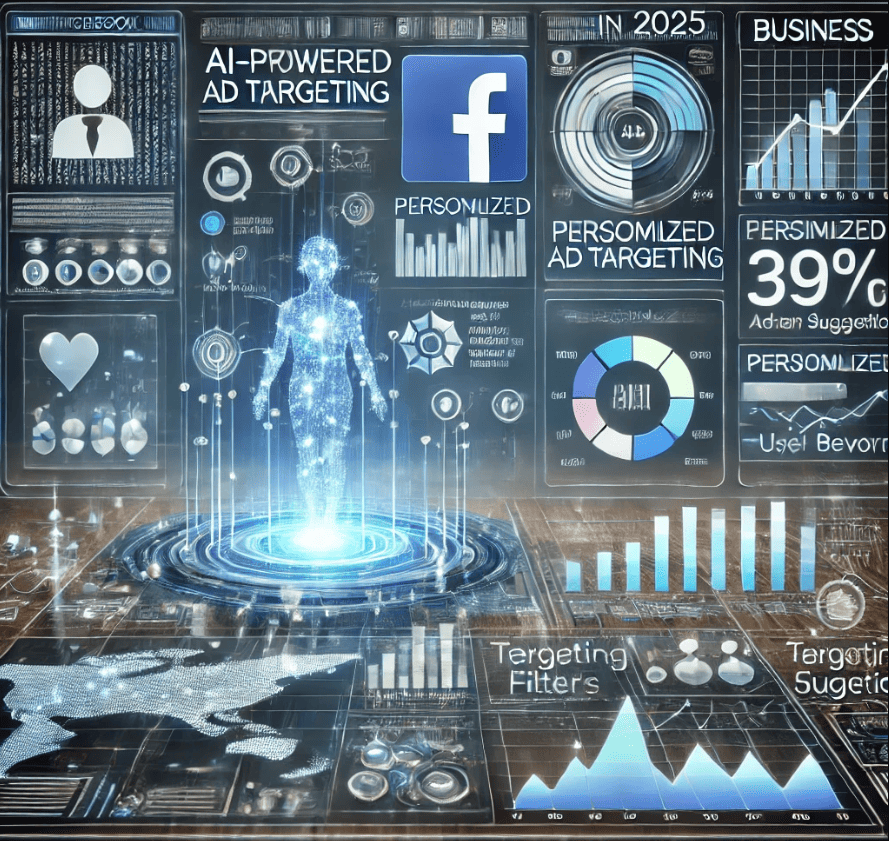
These days, it seems like every company is jumping on the AI bandwagon, and Meta is no exception! They’ve introduced their very own AI model, “Meta AI,” which brings some fantastic advancements to ad targeting. This technology allows businesses to reach their ideal audiences with incredible precision. By looking at user behavior, preferences, and interactions, Facebook is able to deliver personalized ads that really hit the mark, boosting both relevance and engagement.
Now, businesses on Facebook can easily fine-tune their campaigns based on demographics, interests, and even specific behaviors, ensuring they get fantastic results. This targeted approach helps brands save on ad spending while achieving higher conversion rates, making Facebook an essential tool for marketers. Plus, with the AI continuously adapting and learning, campaigns can be optimized in real-time, providing a smart and efficient advertising solution for businesses of all sizes.
4. Seamless integration across meta platforms
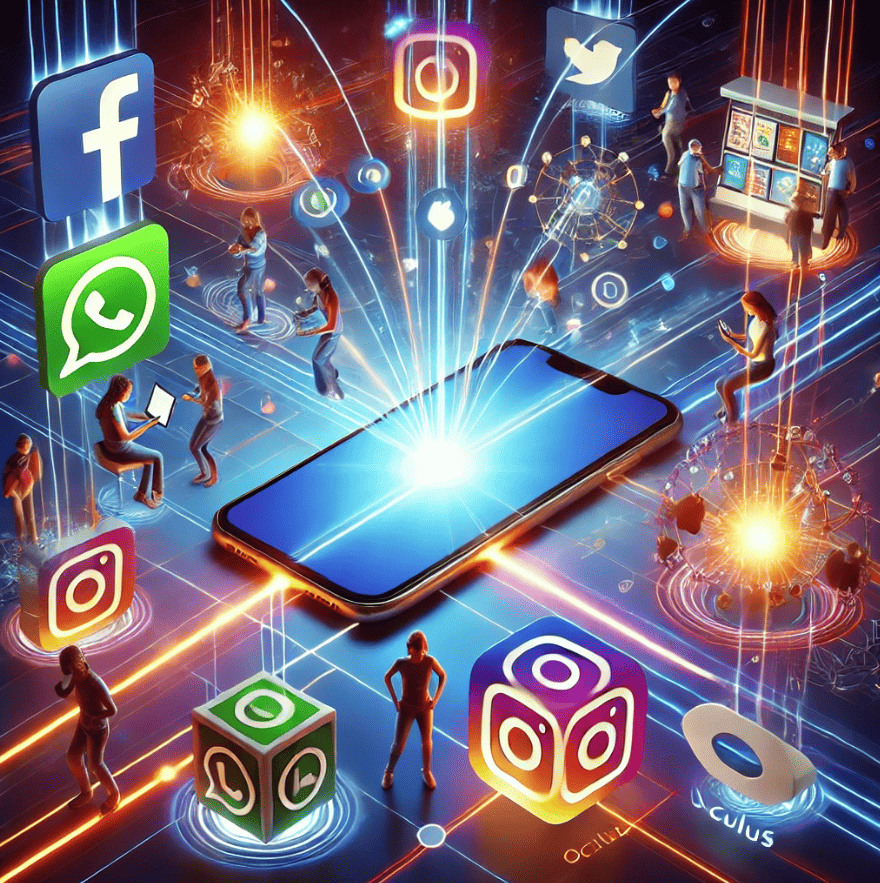
As a Meta product, Facebook has the added benefit of seamlessly connecting with other Meta platforms like Instagram, WhatsApp, and Oculus, which really enhances the overall user experience. This integration allows users to easily post, send messages, shop, and even play VR games, all without having to switch between apps.
For businesses, this cross-platform connection is a huge advantage, as it ensures that content is accessible to a broader audience, boosting brand awareness. Whether it’s chatting on Facebook, shopping on Instagram, or diving into an Oculus adventure, the experience is smooth and connected, making it easier for users to engage in all their favorite activities.
5. E-commerce and Social Shopping
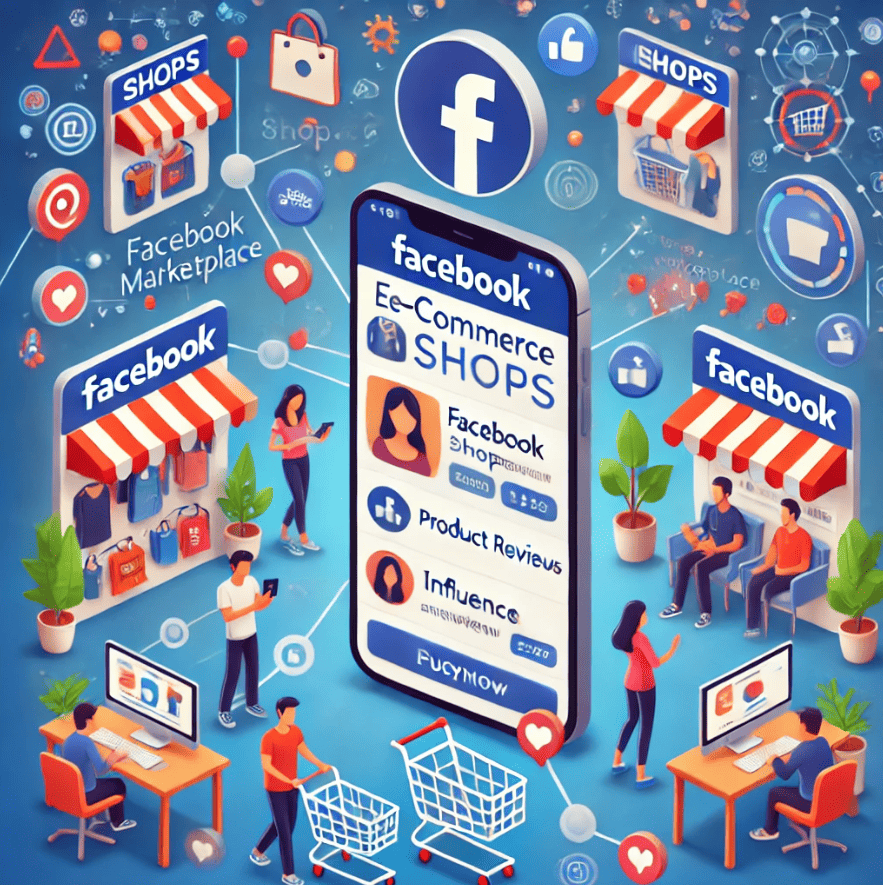
Over the years, Facebook has grown into a powerful giant for e-commerce initiation by enabling businesses of all sizes to engage in selling directly on the platform. Facebook Shops and Marketplace have made user observation, purchases, and reviews of products smooth without the need to exit the app. Social shopping has risen with users finding out about new products due to the impact of influencer advertising, targeted advertising, and social media posts. This brings social aspects into the shopping experience; hence, not only does the consumer shop, but they also interact with other consumers, enhancing their shopping experience. For instance, if someone is looking to buy an indoor trampoline, they can browse Facebook Marketplace, check reviews, and even see recommendations from others who have purchased similar products.
6. Powerful Business Networking Tool
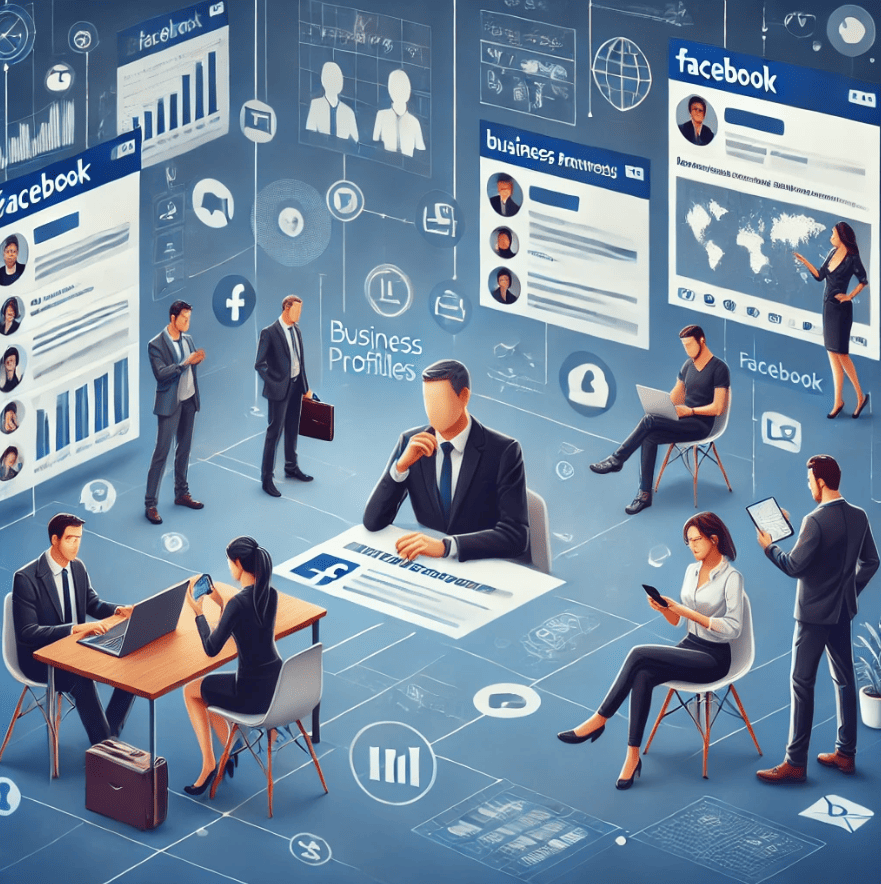
Facebook is no longer just a place to connect with friends and family; it’s also become a powerful tool for networking and advancing careers or businesses. With a variety of industry-specific groups and pages, Facebook allows members to exchange ideas, collaborate, and explore new opportunities. These features make it a dynamic platform for entrepreneurs, freelancers, and business owners to build relationships, moving beyond the traditional structures found on platforms like LinkedIn.
Thanks to features like video calls, group chats, and events, Facebook helps foster connections that can positively impact business development and partnerships. The way we communicate in the business world has evolved, and platforms like Facebook and LinkedIn make it easier to manage both professional and social interactions. Today, much of the information about businesses and organizations is found on social networking sites rather than formal ones. We’re entering a world without geographical boundaries, where socializing and business blend more seamlessly.
7. Enhanced Privacy Controls

Facebook offers its users a more advanced set of privacy settings compared to other social networks, giving them greater control over their data-sharing preferences. These features allow users to choose who can see their posts and personal information, as well as manage interactions with specific content.
With the increased clarity of these settings, it’s now easier to customize privacy options for different audiences, such as friends or the general public, or even limit access entirely. This level of protection reassures users, encouraging them to share aspects of their lives without worrying about losing control over their data. As a result, Facebook helps foster a healthier and more secure online experience in an increasingly interconnected world.
8. Virtual Learning and Skill Building
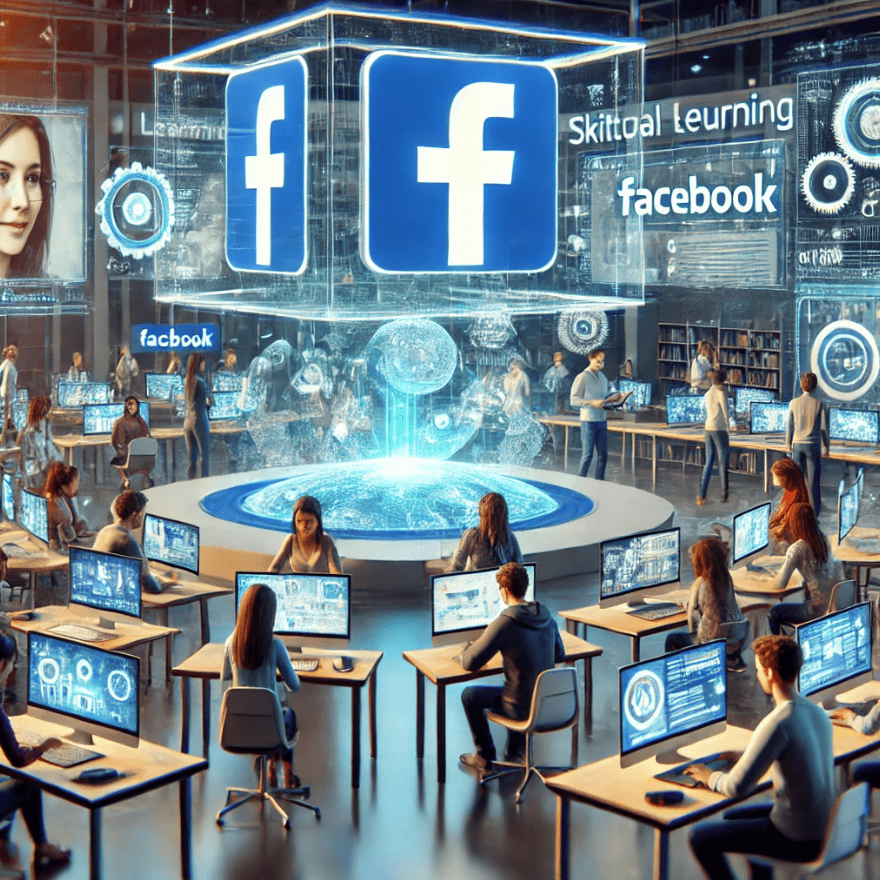
Facebook has evolved into a great place for virtual learning and skill-building. With live workshops, webinars, and interactive courses available right on your newsfeed, users can easily pick up new skills. Whether you’re interested in coding, digital marketing, or creative arts, Facebook makes it simple to access educational resources and connect with expert instructors from around the world.
Thanks to AI-curated recommendations tailored to your interests, learning is now more personalized, allowing you to grow professionally or explore hobbies at your own pace. Plus, with virtual classrooms and immersive tools like VR and AR, learning on Facebook has become more engaging and fun.
9. Digital Social Activism
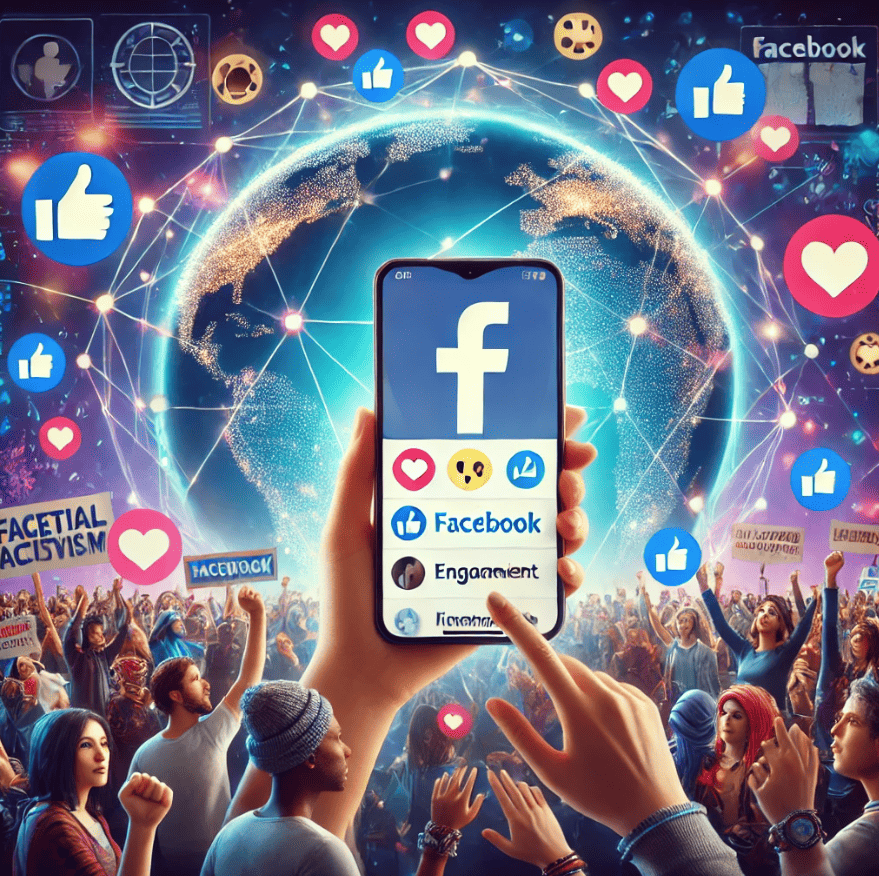
Facebook is a powerful tool for digital social activism, making it easy for activists to connect with a global audience quickly and without cost. It turns local issues into international movements by offering features like live streaming, event creation, and groups that help people organize and mobilize in real-time.
By sharing stories, petitions, and updates, activists can engage and educate their followers, building a strong sense of community and solidarity. With such a large user base, the platform gives a huge boost in visibility, helping amplify voices that might not be heard otherwise. Plus, with Facebook’s analytics tools, activists can track the success of their campaigns and adjust strategies to make an even bigger impact.
10. Tailored User Experiences with AI

Facebook’s AI technology makes it feel so much more personal and relevant. It learns what you are into by paying attention to your activity and filling your feed with posts, ads, and updates that actually interest you. This keeps you more engaged, and the time spent on Facebook means something.
In addition, AI powers chatbots and customer service, giving you quick, helpful responses when you need them. It also provides suggestions of groups, events, and friends whose tastes go along well with yours, so it can be connected to people having interests in common. These customized touches make Facebook much more user-friendly, even enjoyable to navigate.
Also Check: Advantages And Disadvantages of Artificial Intelligence(AI)
11. Massive User Base
Facebook has over 2.9 billion monthly active users, making it the largest social media platform globally. This sheer scale offers both individuals and businesses access to a vast audience. For businesses, this means the potential to reach customers from nearly every demographic imaginable, whether targeting young millennials in urban areas or older users in rural regions.
For individuals, it means being able to stay connected with friends, family, and acquaintances across the globe, even if they’re in different countries or time zones. For example, a small local business can use Facebook to promote its products to nearby customers, while an online-only company can target a global audience with international shipping options.
12. Community Building through Groups
Facebook Groups allow users to create and participate in niche communities. Whether it’s a local book club, a parenting group, or a global tech enthusiast community, groups enable meaningful conversations around shared interests. These groups foster collaboration, discussion, and support.
For example, a non-profit organization working on environmental issues can use Facebook Groups to create a community of activists, share resources, organize events, and coordinate collective actions, all in one place. During the COVID-19 pandemic, many community-based Facebook Groups helped people stay connected, share local resources, and provide emotional support.
13. Event Management
Facebook’s event feature allows users to easily organize, promote, and manage events. Whether it’s a local concert, a virtual webinar, or a charity fundraiser, Facebook helps people create events, invite attendees, and share updates. It also provides tools to track attendance, send reminders, and post updates.
For example, a music festival organizer can use Facebook Events to reach thousands of people, offering ticket sales through the platform and providing live updates about artists, schedules, and any last-minute changes. Virtual events like conferences or live Q&A sessions have also become popular through this feature, with easy integration of live streaming. Companies can easily explore these events and add wherever they want to participate in their corporate events calendar.
14. Integrated Messenger for Communication
Facebook Messenger is a versatile communication tool integrated directly with Facebook. It supports text messaging, voice calls, video calls, and group chats, making it easy to stay in touch with both individuals and groups. This is particularly useful for businesses using Messenger to provide customer support or for users coordinating with friends or family.
For example, a customer-facing business like an online boutique can use Messenger to instantly communicate with clients, resolve issues, and provide updates on orders. Meanwhile, a group of friends planning a weekend trip can create a Messenger group to discuss travel plans, share photos, and stay in touch during the trip.
15. Content Sharing and Discovery
Facebook’s News Feed is designed to promote a diverse range of content—text posts, videos, photos, articles, and live streams—allowing users to discover new content that is relevant to their interests. The platform also enables content creators, influencers, and businesses to reach large audiences.
For example, news agencies and content creators can post articles or videos that reach millions of users, driving engagement and conversation. Facebook also supports native video content, which makes it an ideal platform for creators who want to engage audiences with live broadcasts, tutorials, product reviews, or educational content. The ability to “Like,” comment on, and share posts further fuels engagement and the viral spread of popular content.
Also Check: Pros and Cons of the Internet
Disadvantages of Facebook
1. Surveillance and privacy concerns
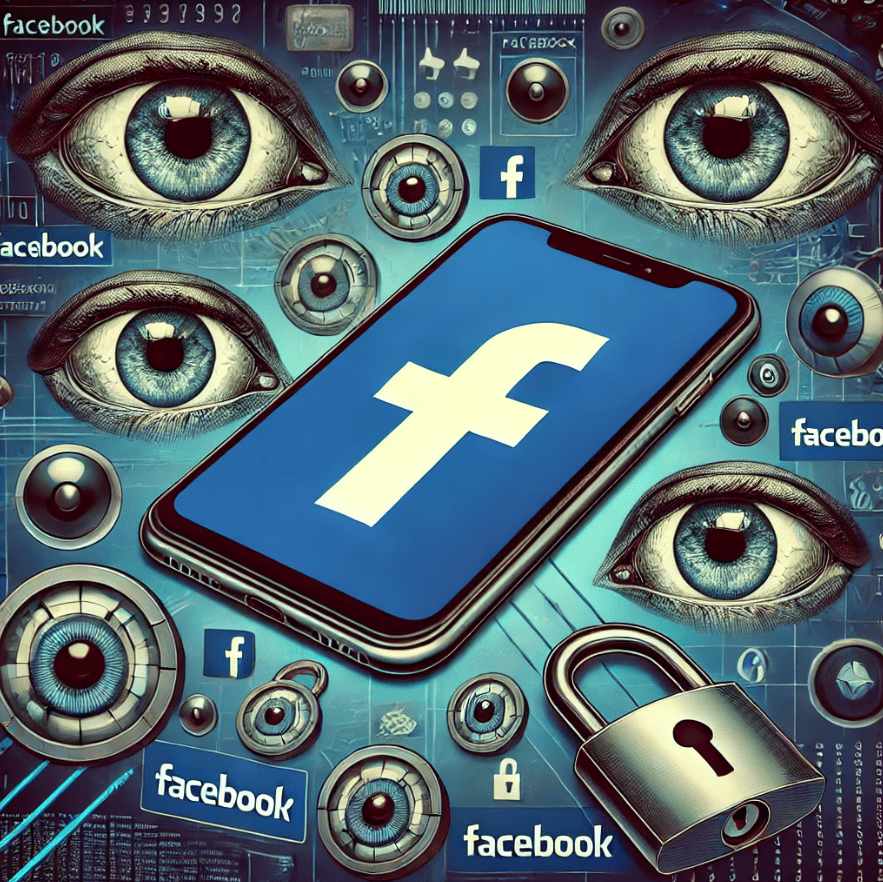
Over the past few years, Facebook has faced increasing criticism for how it handles data collection. Even though they’ve introduced more privacy controls, the platform still gathers a lot of user data to power its algorithms and show targeted ads. This level of data collection has made people more concerned about their privacy and control over their online activity.
Facebook also keeps an eye on things like your browsing habits, interactions, and location, all tracked by its algorithms. Naturally, this raises worries about how that information could be used or misused by third parties. With artificial intelligence playing a bigger role in personalization, it’s becoming harder for users to fully understand or manage how their data is collected and used.
2. Misinformation and fake news
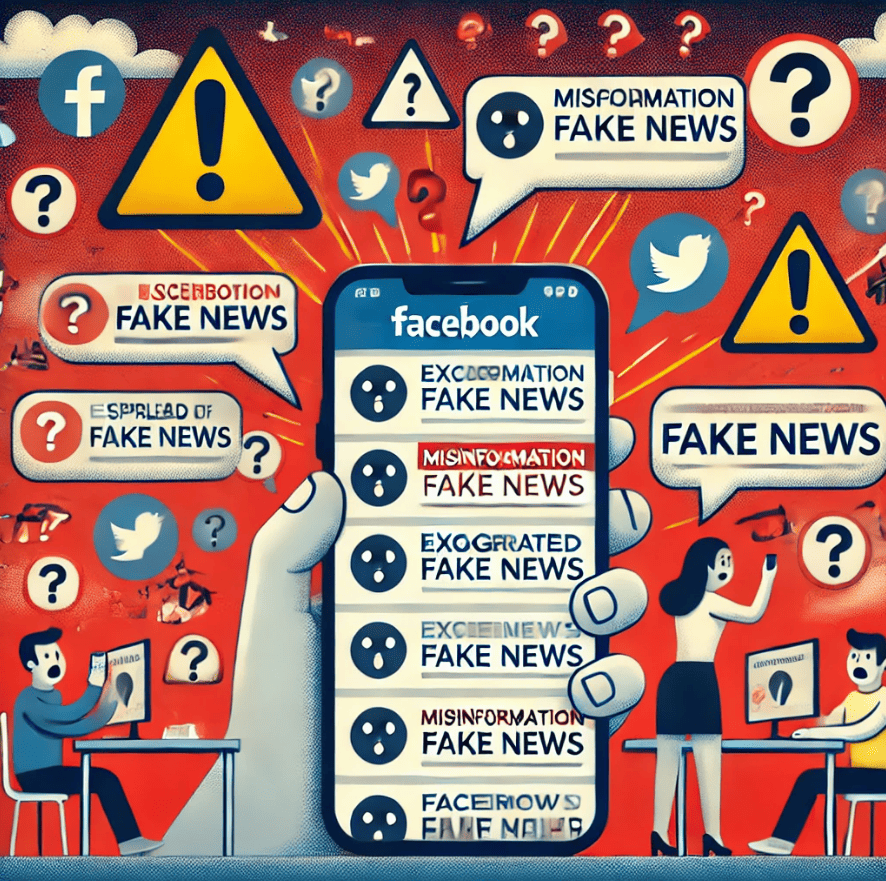
Another problem people found on Facebook is that it can be difficult to sort the real news from the fake news. They have rather enhanced fact-checking and content moderation, but considering the volume of posts, it becomes almost impossible to arrest all misinformation. Fake news, conspiracy theories, and rumors can be up and doing their rounds in no time, causing distress where there was none.
This becomes even more challenging with the Facebook algorithms, as they sometimes communicate more irrelevant posts than sensational than accurate information. Although Facebook has tried to contain this, it remains rife, whereby it determines public opinion, political processes, and even critical health decisions.
3. Misinformation Spreads Despite Fact-Checking
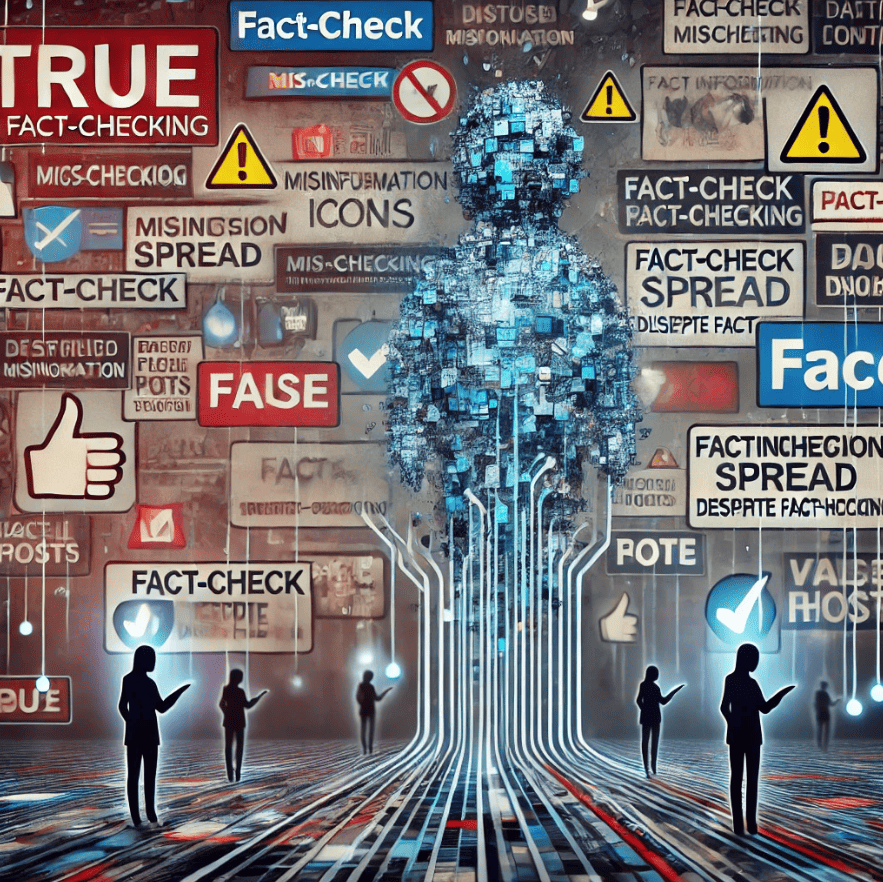
Even though Facebook introduced advanced fact-checking tools, the misinformation still spreads widely across the other platforms. With the massive amount of content shared daily, it’s tough to catch every misleading post or article. While some false information gets flagged, users may still come across unverified or inaccurate news, especially in private groups or viral posts. This misinformation can affect public opinion, cause panic, and even harm individuals. Although Facebook’s algorithms and partnerships with fact-checkers have made progress, fully controlling the flow of false content remains a challenge, raising concerns about its impact on public discussions.
4. Addictive Nature
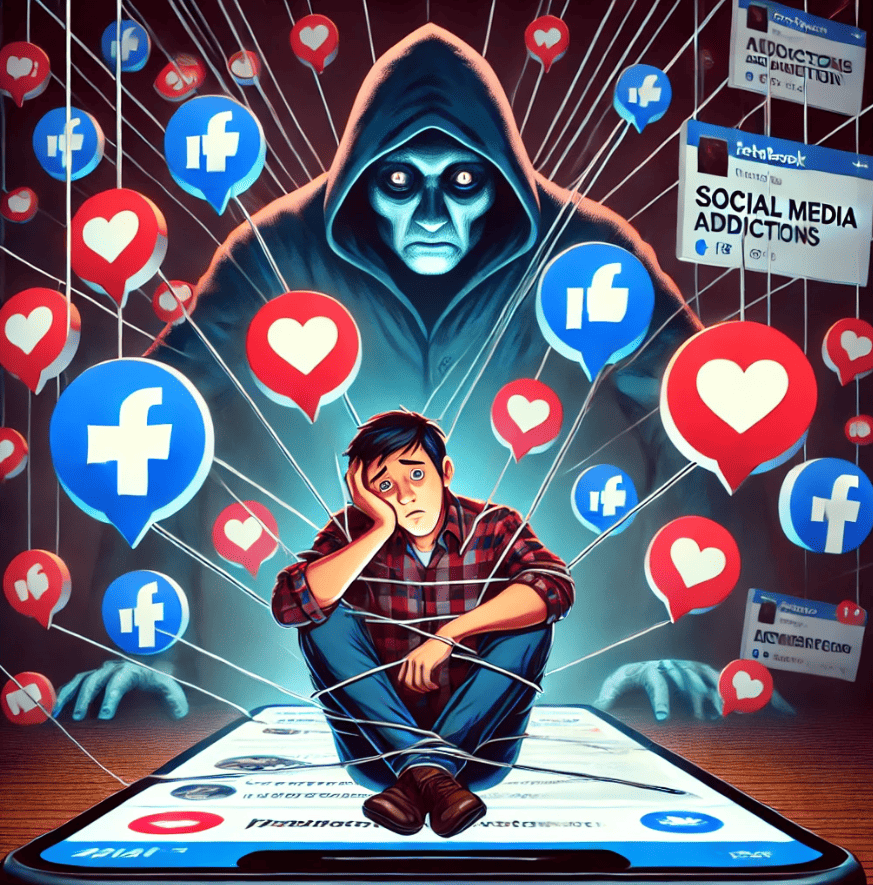
Each social network has its drawback, and one of those is how it can quickly turn into an addiction. The interface and recommended friends feature are made to get our attention, and given all the interesting features of Facebook, it is hard to log off or even pause and get back to reality since Facebook’s metaverse offers endless scrolling and posts. With strike-through alert messages, inexhaustible news feeds, and relevant recommendations, it is not shocking that people get addicted and spend more time than planned.
This can have an impact on one’s performance at work or school, interpersonal interactions, and social life, as well as well-being, because it becomes increasingly difficult to log out and experience a balanced, real-world life. Even though the design of the site is super enticing, it does make people spend more time in front of the computer communicating and entertaining virtually.
5. Mental Health Impact
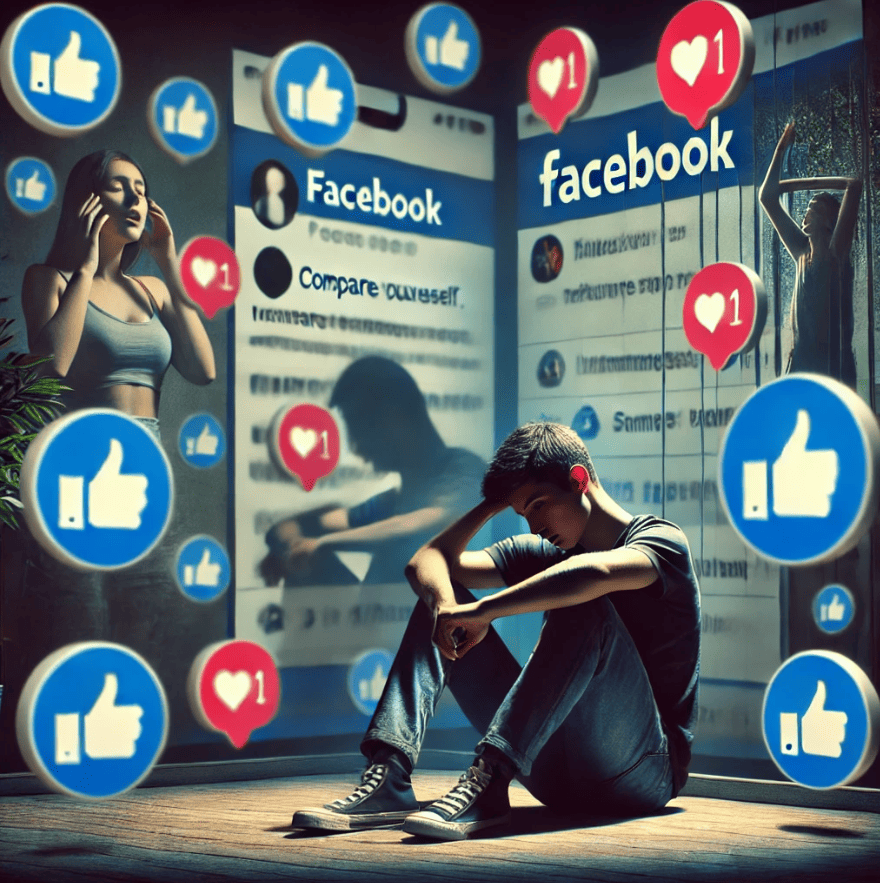
Another important issue is the impact Facebook has on mental health. We’re constantly exposed to filtered content, comparing ourselves to influencers, and feeling pressured to always present the best version of ourselves. This can lead to anxiety, depression, and feelings of unworthiness.
Facebook’s algorithms often promote content that triggers emotional reactions, making FOMO (fear of missing out) worse and negatively affecting our self-esteem. Spending endless hours browsing can become addictive, reducing face-to-face communication and, over time, leading to feelings of loneliness.
While Facebook has its benefits, it’s important to be aware of its potential negative effects on mental health.
6. Cybersecurity Threats

Even though Facebook has improved its security, it still remains a big target for cyberattacks. Cybercriminals are always looking for ways to exploit user data through breaches, identity theft, and phishing. Fake accounts, suspicious links, and ads continue to pop up, tricking people into sharing their personal info.
While Meta is doing its best to strengthen security, protecting such a large user base is tough. These cyber threats can make people lose confidence in the platform and become more vulnerable to scams and other online dangers, especially if they’re not practicing safe internet habits.
7. Limited Organic Reach for Businesses
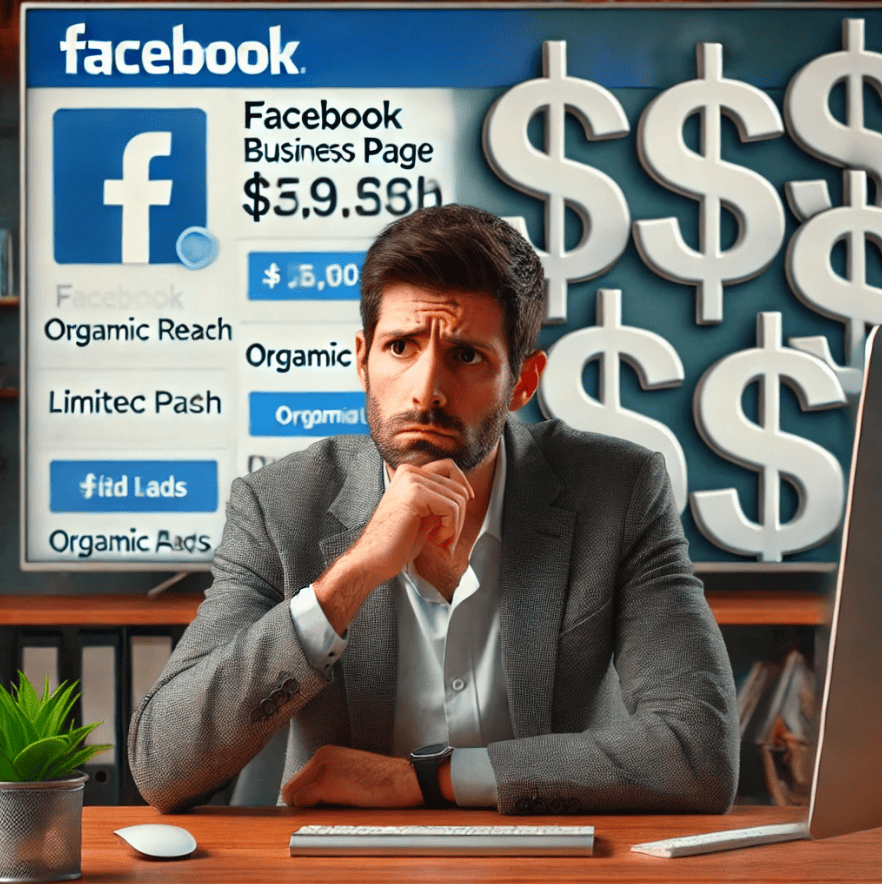
Like most online platforms, Facebook has its own way of making money, and one of the main methods is through reach. If a business wants to connect with a wider audience, Facebook gives very limited visibility for free organic posts. To reach more people, businesses often need to spend a lot of money on ads. One downside is that organic reach is pretty limited, and with changes to the algorithm, even great content can struggle to get seen without paying for ads.
This is especially tough for small businesses that can’t afford big marketing budgets. They often find themselves dealing with low customer interest and relying on paid promotions just to grow and get noticed by potential customers.
8. Fake Accounts and Bots
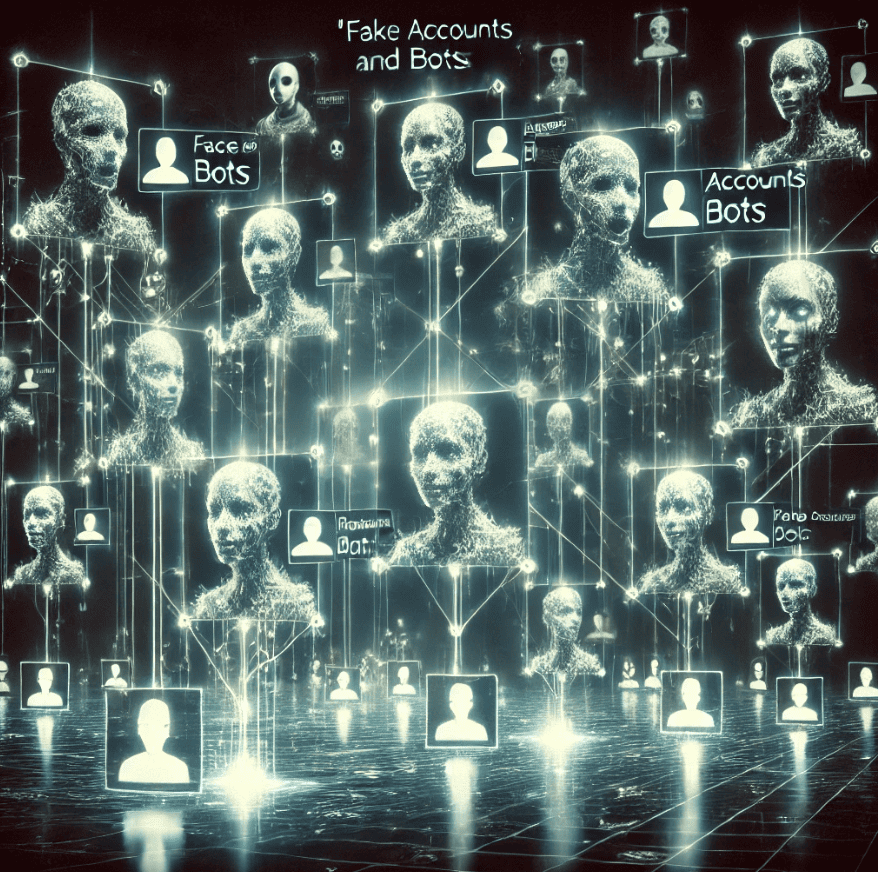
One of the ongoing challenges with Facebook is the presence of fake accounts and bots. Even with improvements in security, the platform still has to deal with these fraudulent profiles, which can disrupt user experiences. You might come across fake accounts that are used for spamming, spreading misinformation, or even trying to boost engagement on certain posts artificially. Bots can also manipulate conversations, making it hard to find genuine interactions.
For businesses, this can make social media engagement feel less authentic, and for everyday users, it can lead to a lack of trust and a less genuine online atmosphere. Facebook is working hard to address these issues, but it’s definitely a tough task
9. Overcommercialization of the Platform
These days, Facebook seems to be putting a lot of focus on monetization, which means we’re seeing more commercial content that can overshadow those genuine social interactions we all love. It can feel like users are constantly bombarded with advertisements, sponsored posts, and promotional material, making it tough to find the authentic content among all the marketing pitches.
This relentless commercialization can take away from the personal and community feel of the platform, often leaving us feeling like we’re part of a marketplace rather than a cozy social network. As brands compete for our attention, it can make the user experience feel cluttered, diminishing the sense of connection and authenticity that initially drew many of us to Facebook.
10. Dependence on Virtual Interaction

Nowadays, many people rely heavily on virtual interactions through Facebook and other social media platforms, which can sometimes lead to social isolation. While online connections can be wonderful, they might take away from the joy of face-to-face conversations with friends and family. This reliance on digital communication can make it trickier to build those deep, meaningful relationships we all cherish in real life.
11. Data Monetization
Facebook collects vast amounts of user data, including personal details, preferences, and online behavior, which is used for advertising and other business purposes. While this helps advertisers target users effectively, it also raises concerns about how much control users have over their own data.
Users often feel that their information is being exploited for corporate profits without adequate transparency about what’s being collected and how it’s used.
12. Echo Chambers and Polarization
Facebook’s algorithm tends to show users content that aligns with their existing beliefs and interests. This can lead to the formation of echo chambers, where users are mainly exposed to opinions that reinforce their own views, potentially fueling political or ideological polarization. Over time, this lack of exposure to diverse perspectives can deepen divisions in society.
For example, during elections or major social movements, users might only see content from like-minded groups, amplifying tensions rather than encouraging constructive dialogue.
13. Excessive Focus on Engagement Metrics
Facebook prioritizes content that generates likes, shares, and comments, often favoring sensational or emotionally charged posts. This focus on engagement can sometimes prioritize low-quality content that provokes strong reactions rather than informative or balanced content. For example, posts that stir anger or fear may be pushed to the top of the feed because they generate more interaction, leading to an overabundance of controversial or inflammatory content.
14. Digital Inequality
While Facebook is accessible to billions, its usage patterns are often influenced by socioeconomic factors such as access to the internet and digital literacy. People in rural or low-income areas may have limited access to the platform, and even when they do, they may not have the skills to use it effectively.
This creates a digital divide where certain populations are left out of the social and economic opportunities that Facebook can offer. For instance, a small business in a rural area may struggle to harness Facebook for marketing due to limited internet access or a lack of knowledge about how to use the platform’s tools.
15. Content Moderation Challenges
Facebook has struggled to effectively moderate the massive amount of content shared on its platform daily. Although it employs automated systems and human reviewers, inappropriate content—such as hate speech, graphic violence, and explicit material—often slips through the cracks.
This can create a negative or harmful user experience, particularly for vulnerable groups. For example, harmful or offensive content might go viral before moderators can intervene, causing widespread damage before it is addressed.
Also Check: Pros and Cons of Digital Marketing
Also Check: Advantages and Disadvantages of Social Media
FAQs On Advantages and Disadvantages of Facebook
Connectivity, business tools, large audience, event management, and community building.
Data monetization, echo chambers, content moderation, and digital inequality.
Facebook offers a large customer base and targeted advertising, but organic reach has become limited.
While Facebook provides security features, privacy concerns and data use policies can be problematic.

